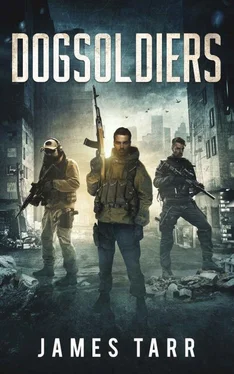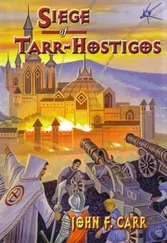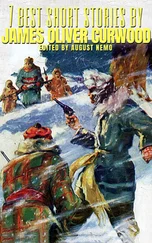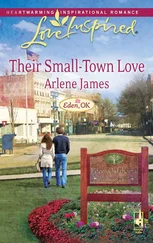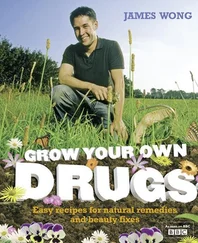“There was more going on than just that,” Quentin said, cocking his head. “But… that was a lot of it.”
Jason nodded. “They did that with my dad, and our farm. Since they nationalized all the ‘food producers’ five years ago, because of the wartime food shortages, every day there was a new regulation he’d have to follow. He couldn’t keep up with them. He was doing all the work, and yet all the corn and soybeans belonged to the government. They decided what we could keep, even though we grew it.” Even though they needed a tractor to work the farm, his dad could barely afford any gas for it due to all the taxes and carbon offsets being levied, not to mention the reparations assessments. Government agents who’d never in their lives planted a seed walking the rows of corn, telling his father what percentage of the crop he was allowed to keep. And no matter how mad it made him his dad just took it. And took it. He’d never had much fight in him, and what little he’d had left had disappeared after Jason’s mother had died. The cancer should have been survivable, but she’d had to wait eight months for treatment under the national health care system, and by the time they scheduled her surgery… it was too late for surgery. And his dad just took it. Didn’t even seem to get mad about it. Jason had never forgiven him for that.
Mark heaved a big sigh, then went back to the map. “Mile or two south of the border the place was a war zone before there was a war, and less than half of the houses are even still standing. Great thing about those blocks is the almost complete lack of fences. We can walk through the yards between and paralleling the streets, and with all the trees and bushes no one’ll see us.”
After the soup was finished Ed sent Quentin and Weasel back to the river to refill all the pots. “I want everyone to drink everything in your canteens, then we can refill them.” To Jason’s questioning glance he explained, “The best place to store water is inside your body. It’s not bad right now but it’s early. It’s been hot and humid all week and likely to stay that way. Before we leave here I want everybody so hydrated they’re pissing clear.”
Jason didn’t have a sling for his rifle and couldn’t carry it and a heavy pot of water, so Ed detailed him as security for Quentin and Weasel.
“What kind of gun is that? Where’d you get it?” Jason asked Weasel quietly as they walked through the trees to the water. His black submachinegun, if that’s what it was, was slung across his back as he carried the big pot.
Weasel looked at him and thought about how to answer. “When the war started, it wasn’t a ‘war’,” Weasel told him. “We weren’t soldiers, we were just violent criminals, according to the police and the news media. At first, the military wasn’t involved at all, it was just cops. Cops doing the house searches and riot control, federal agents shutting down the websites they didn’t like because they were criticizing the government and exposing the truth. National Guard only got called in when the riots got out of control and cops were getting ambushed. Then, for a while, military and the cops were working together. Because it still wasn’t a war, we still weren’t soldiers, we were murderers. Domestic terrorists. Fundamentalist cultists. They called us all of that, and worse, not just the cops but everyone in the media and all the useful idiots that were happy to believe the shit they were being told. Then came martial law, and they suspended habeas corpus, which meant they could lock up anybody for any reason, for as long as they wanted, which is about as wrong as it gets.”
“Hell, you ask them, we’re still terrorists,” Quentin said. “Have the government or military ever, officially, called this a war? We’re still criminals to them. Because calling us soldiers would maybe force them to admit that we’re actually fighting for something, we’re not looters or crazies or murderers.”
They reached the water. There was no way to do it without getting wet, so Weasel jumped into the knee-high water and dunked one pot under the flowing stream, then the other.
“So the long story short is that this is an MP5,” Weasel told Jason, touching the gun on his back. He climbed out of the water. “It’s a nine-millimeter sub-machinegun. Police SWAT teams used them.” He lifted the full pot of water with a grunt. “It’s not as powerful as an actual rifle, but I earned it. I fucking earned it. And I’m not giving it up. They’re gonna have to take it.”
“It fires a pistol cartridge, right? So it won’t go through their armor?”
Weasel snorted and said defensively, “Neither will your rifle, or any of the rifles we’re carrying, not even Early’s boat anchor. It maybe doesn’t hit as hard, but it doesn’t have any recoil. In the time it takes Early to fire three rounds I can do a full mag dump, and I like not blowing out my eardrums every time I fire a shot. And it seems like it’s easier to find pistol ammo these days than rifle.” He had thirteen 30-round magazines… the only problem was he only had enough ammo to fill three mags and change. “I’m not the only one on the squads to feel that way, there are a number of guys running guns like this, subguns and 9mm ARs and even one pistol-caliber AK. So fuck off.”
Jason changed the obviously touchy subject. “Rouge means red, right?” he asked Quentin quietly as they were working their way back from the river with the freshly refilled pots. It was quiet underneath the trees and the gurgling of the wide stream behind them was soothing. “Is it called that because it’s muddy?”
“Maybe, I don’t know. You know, it caught fire once.”
“What did?”
“The river.” Jason assumed the man was messing with him and made a sound. “No, seriously,” Quentin insisted. “Back before I was born. They used to dump all sorts of chemicals in it, and it caught fire one day.”
“And we’re drinking it?” Jason said, aghast, staring at the water sloshing in the big pot Quentin was carrying.
“They cleaned it up before the war ever started.”
“You see a lot of industry around here likely to pollute the water?” Weasel asked the kid, grunting with the effort of carrying a cast iron pot that had been heavy before he’d filled with two gallons of water. “This whole city’s turning green.”
“Where’d you learn about which plants you can eat?” Jason asked him.
“Some from Early, but most from Todd. He was a landscaper and ran a greenhouse before the war.”
“Todd?”
“Caught a round in the face. Years ago. Four years? Jesus, has it been that long? This fucking war, man. This whole city’s a graveyard.” Filled with a sudden anger Weasel marched past Jason toward the rear of the house, his subgun bouncing on its sling. Jason looked at Quentin, who just shrugged.
It was nearly noon before they left the shelter of the smoky, collapsed house and began picking their way south through the stand of trees. The belt of trees narrowed to a mere fifty feet wide as it approached the next major road. Just to the east was a large, defunct auto salvage yard.
As the squad took up a defensive perimeter Ed glassed the auto salvage yard (he saw nothing moving but a cat), then turned his binoculars to the massive road in front of them. The border between the suburbs and the city to the south, The Border, was a wide surface street running directly east/west. There were four traffic lanes in each direction, separated by a grassy median as wide as four lanes of traffic. Including the easements and sidewalks on either side of the road, the squad was faced with two hundred feet of open ground to cross. Actually, directly south of their position was a gas station that had been torn apart in an explosion followed by a fire, and there was no real cover there. To make it to the dense neighborhood south of the gas station was another hundred feet.
Читать дальше
